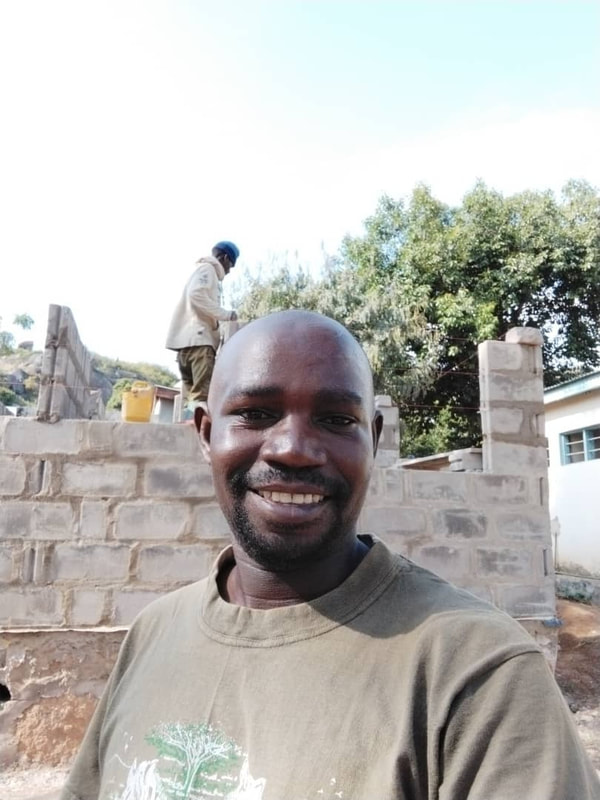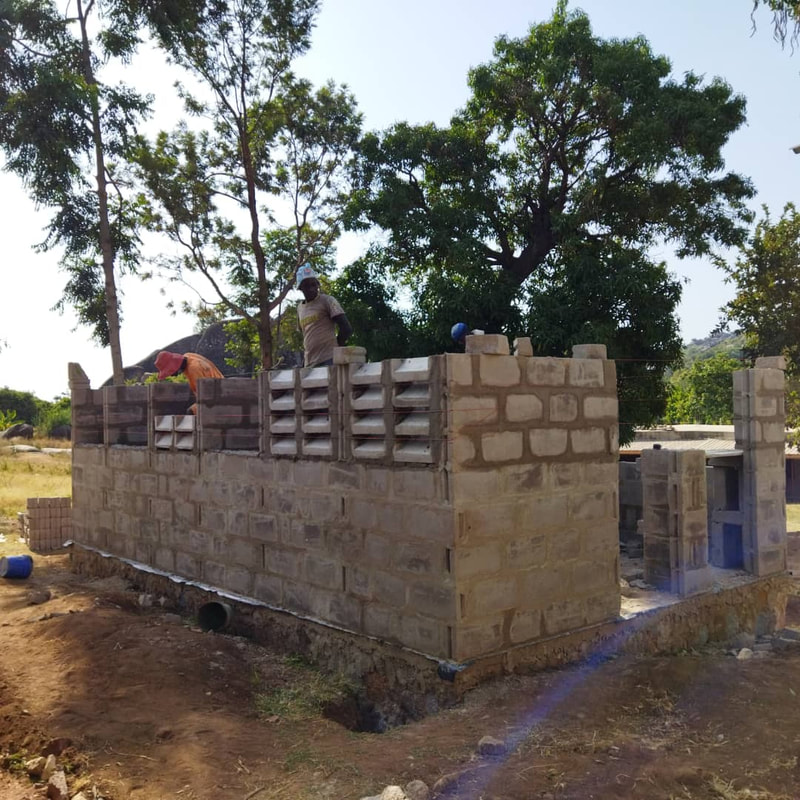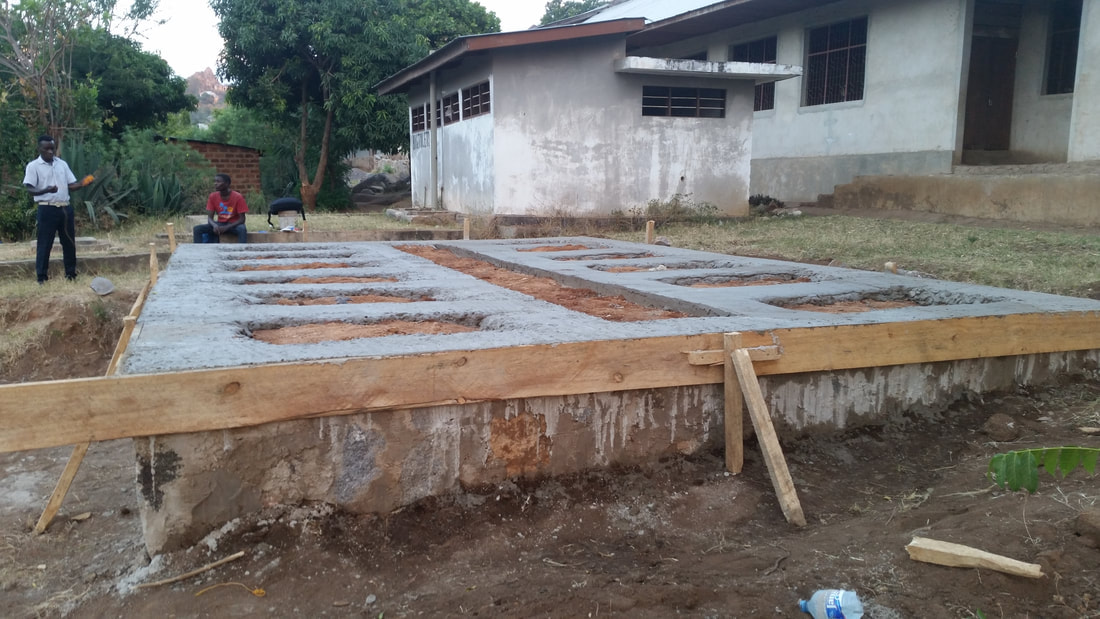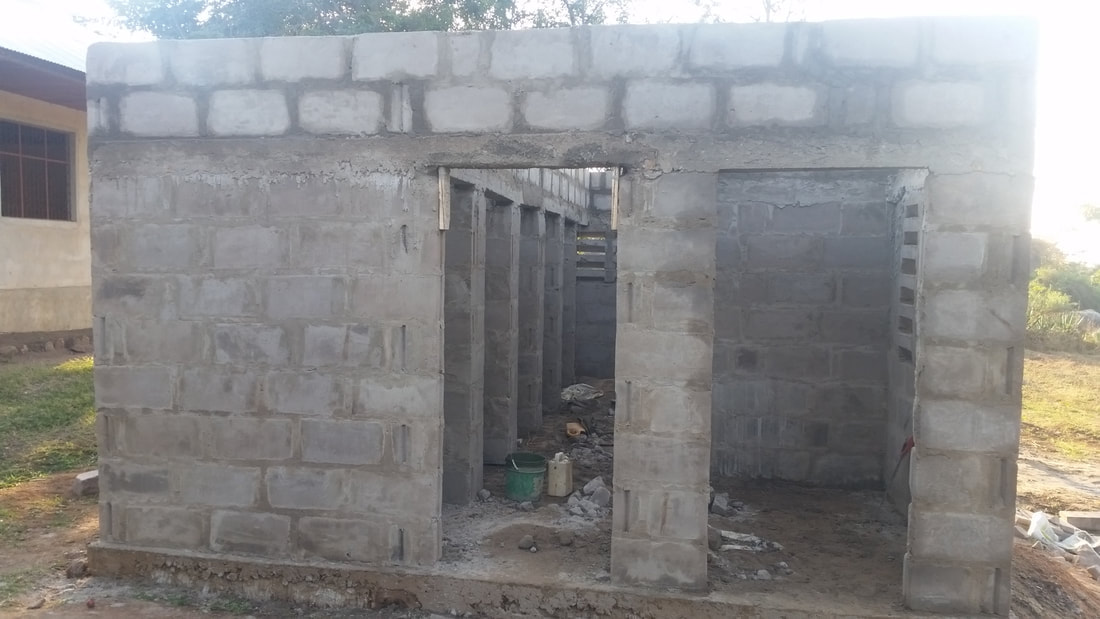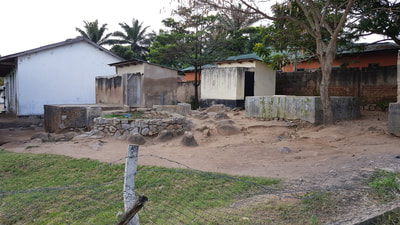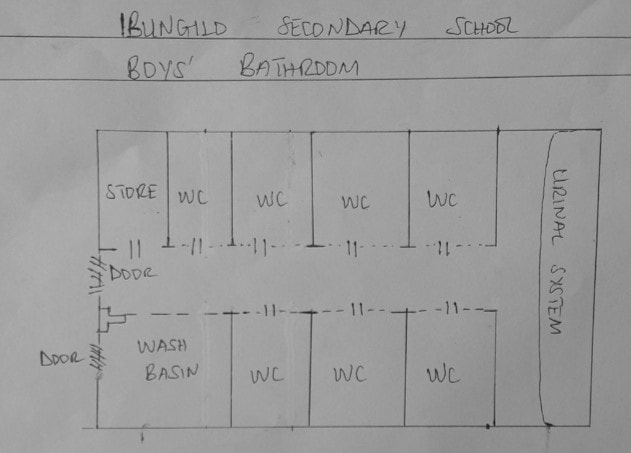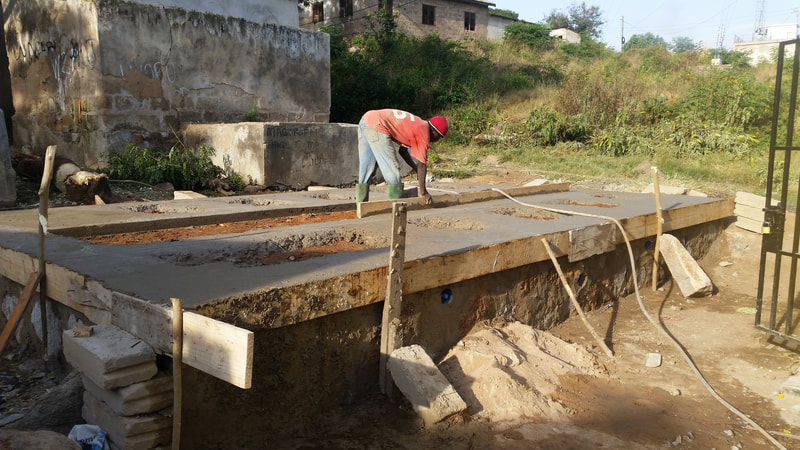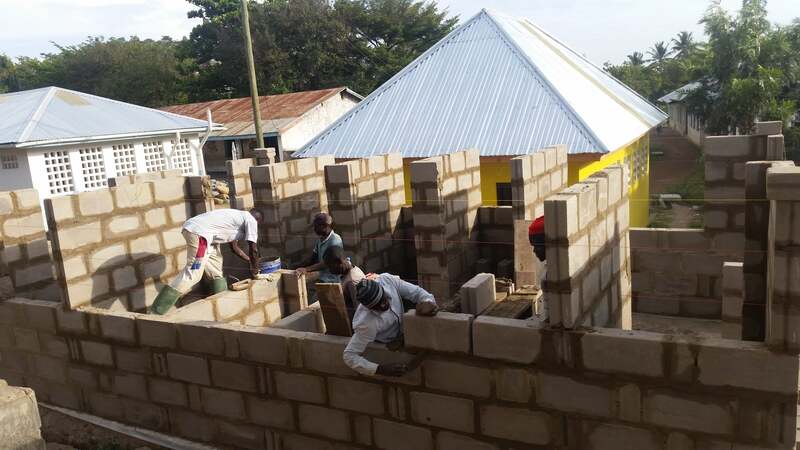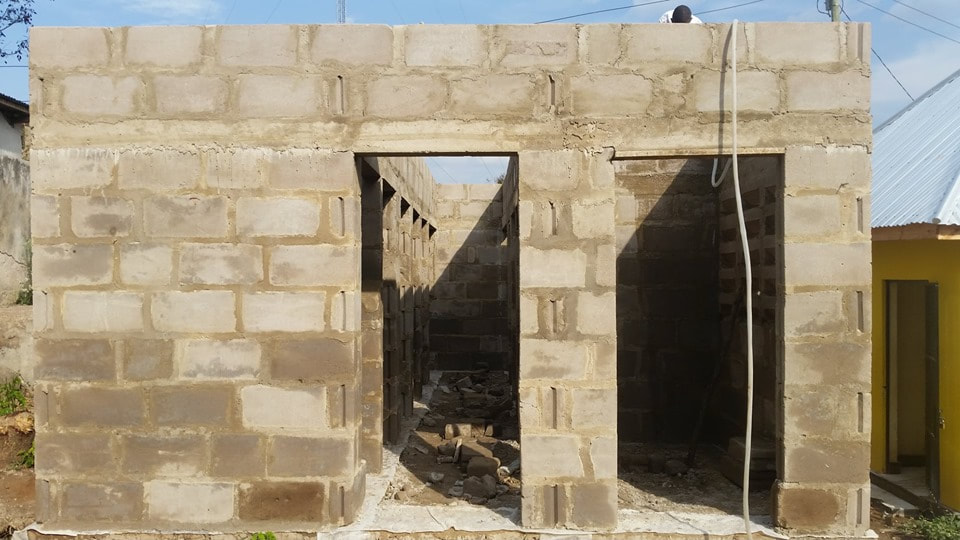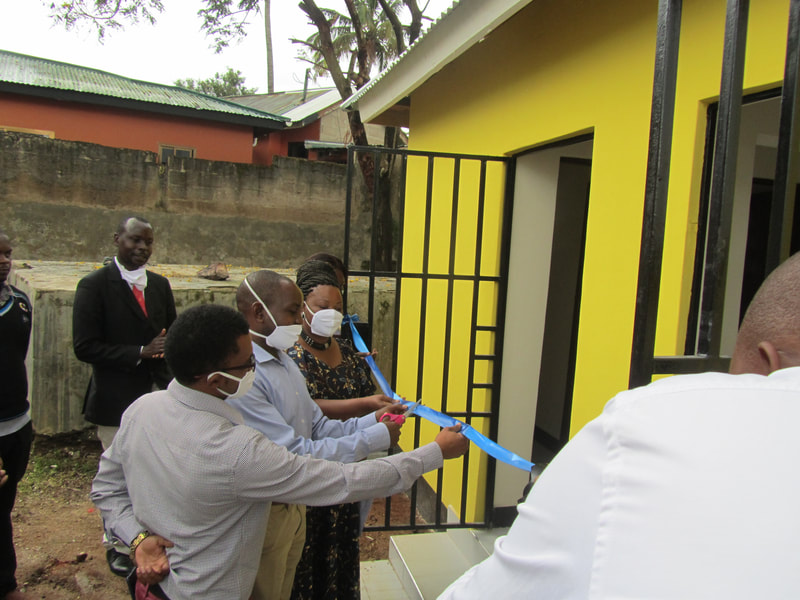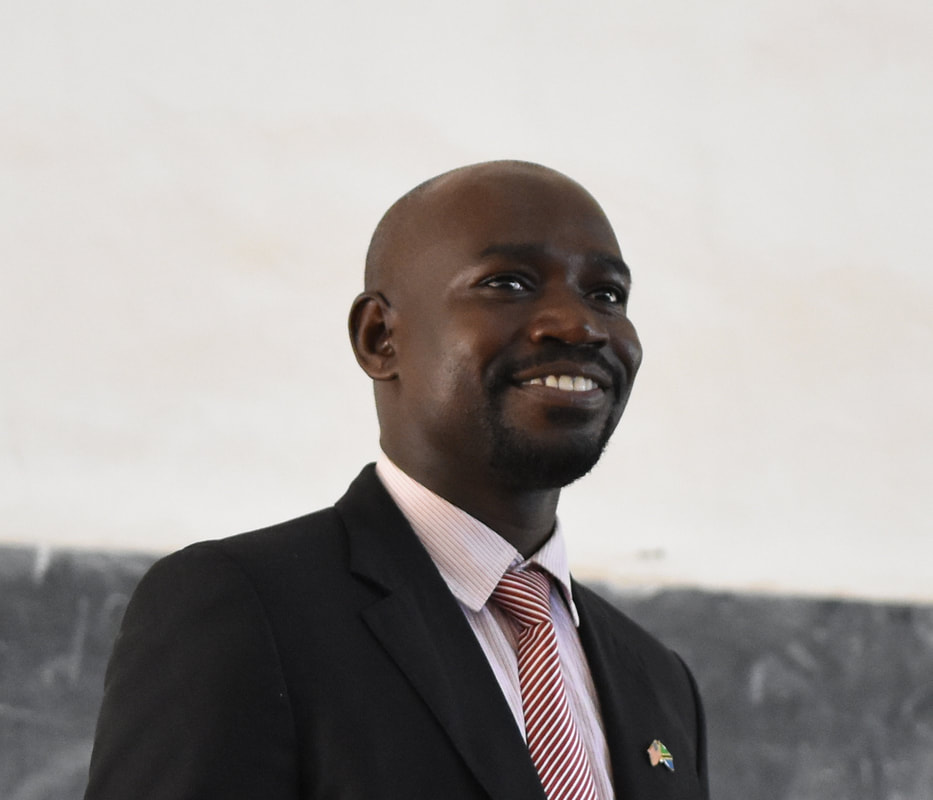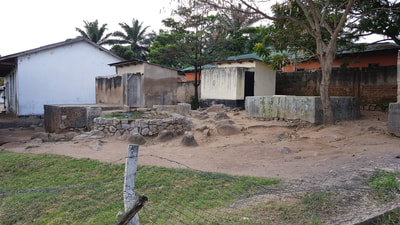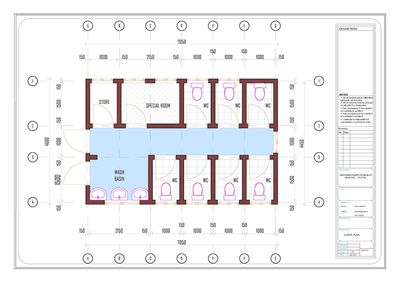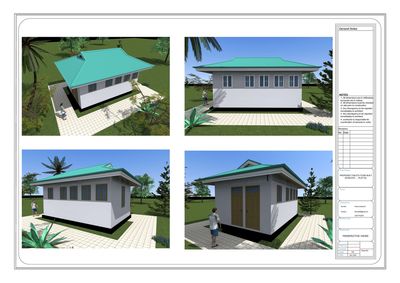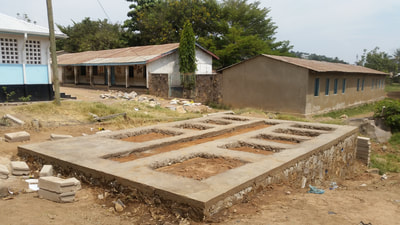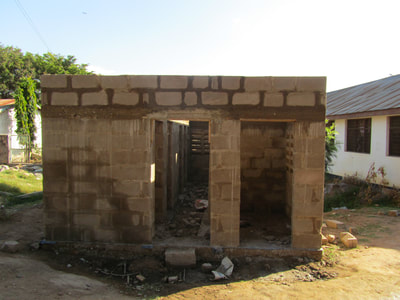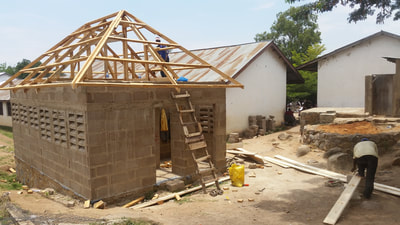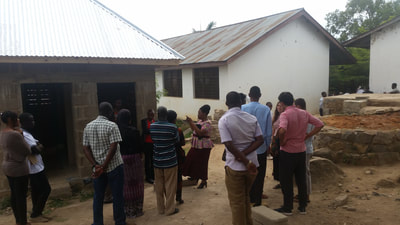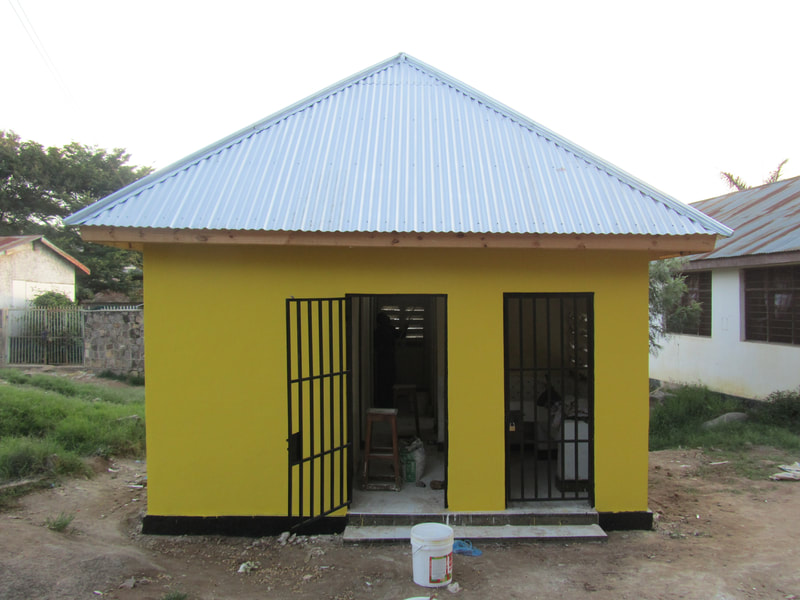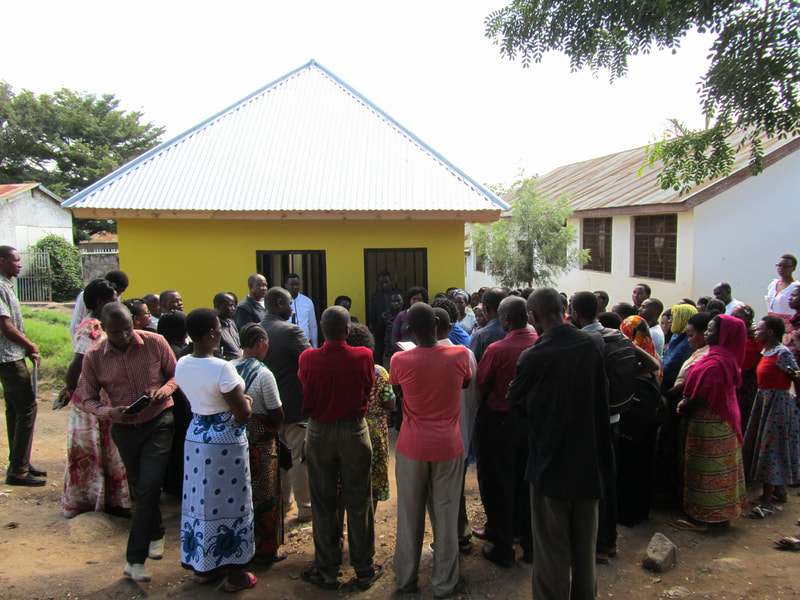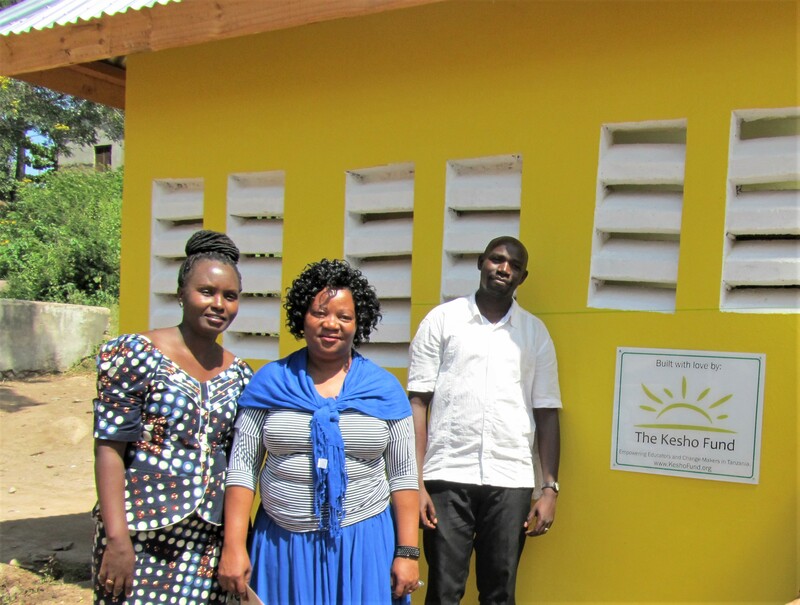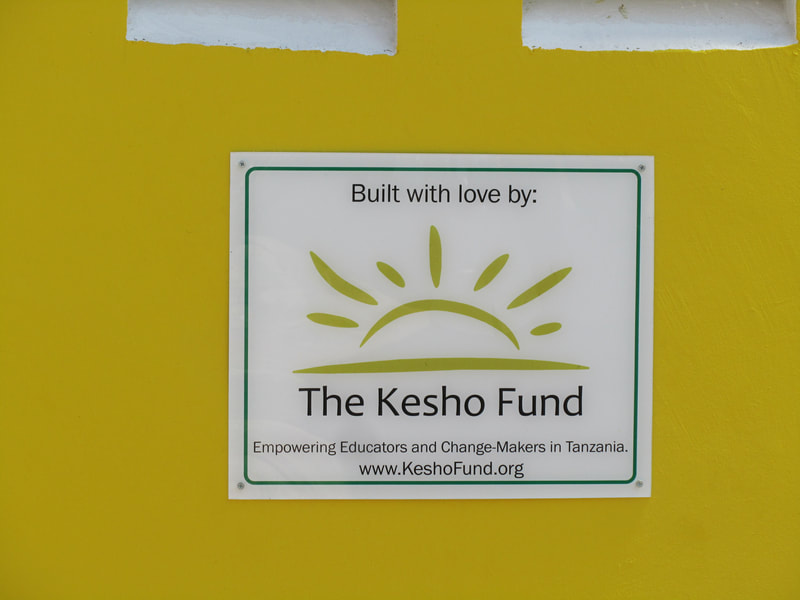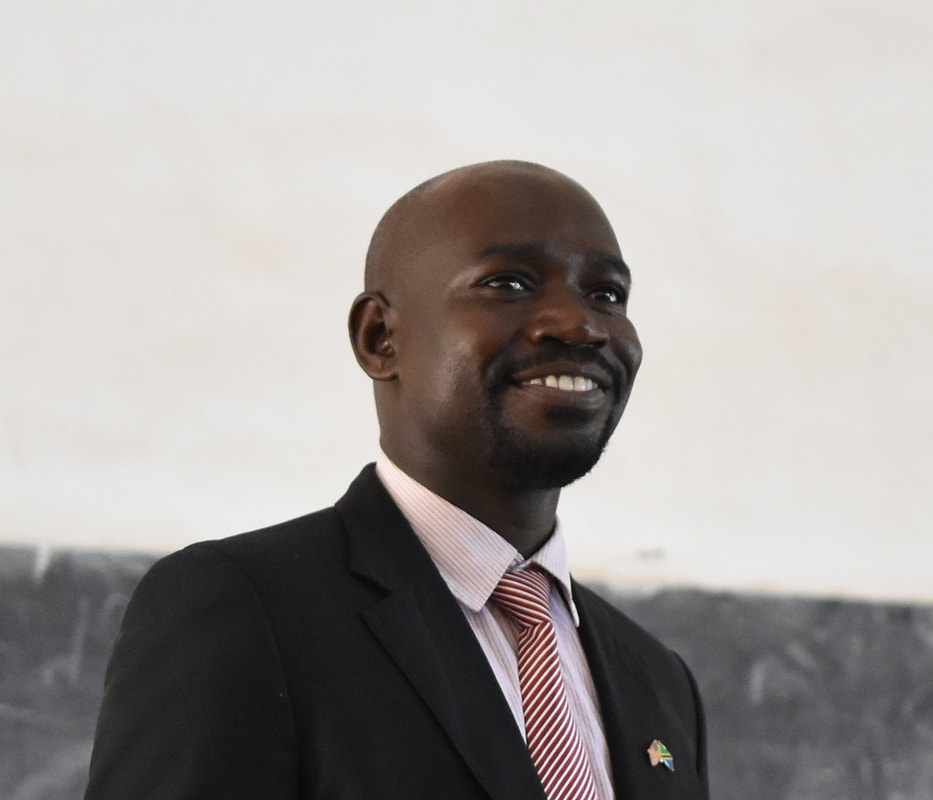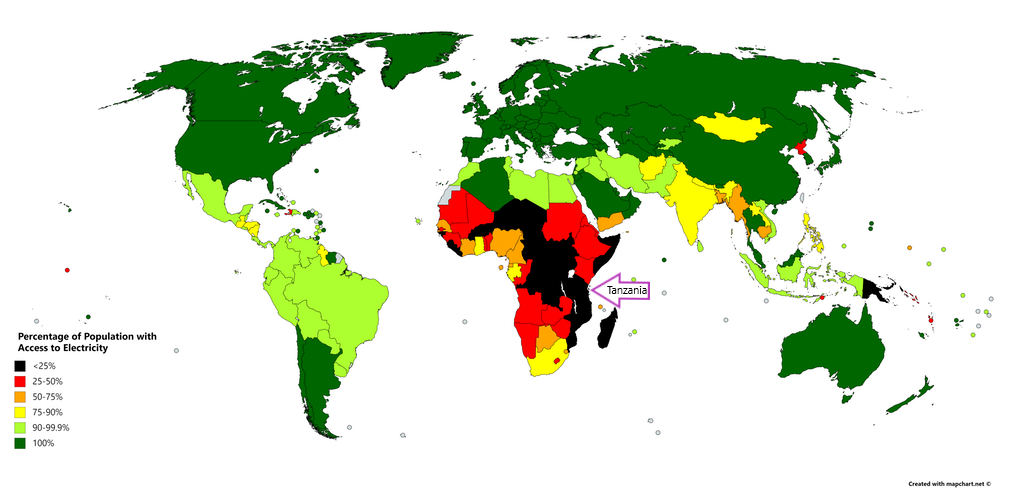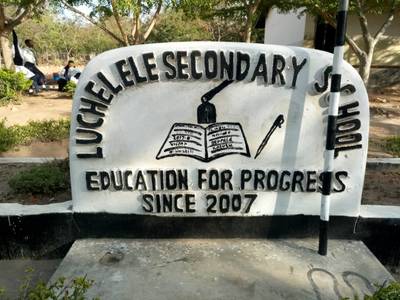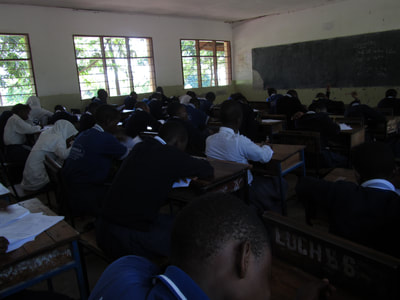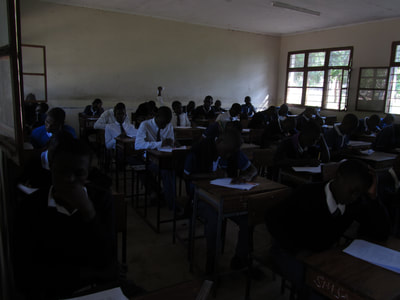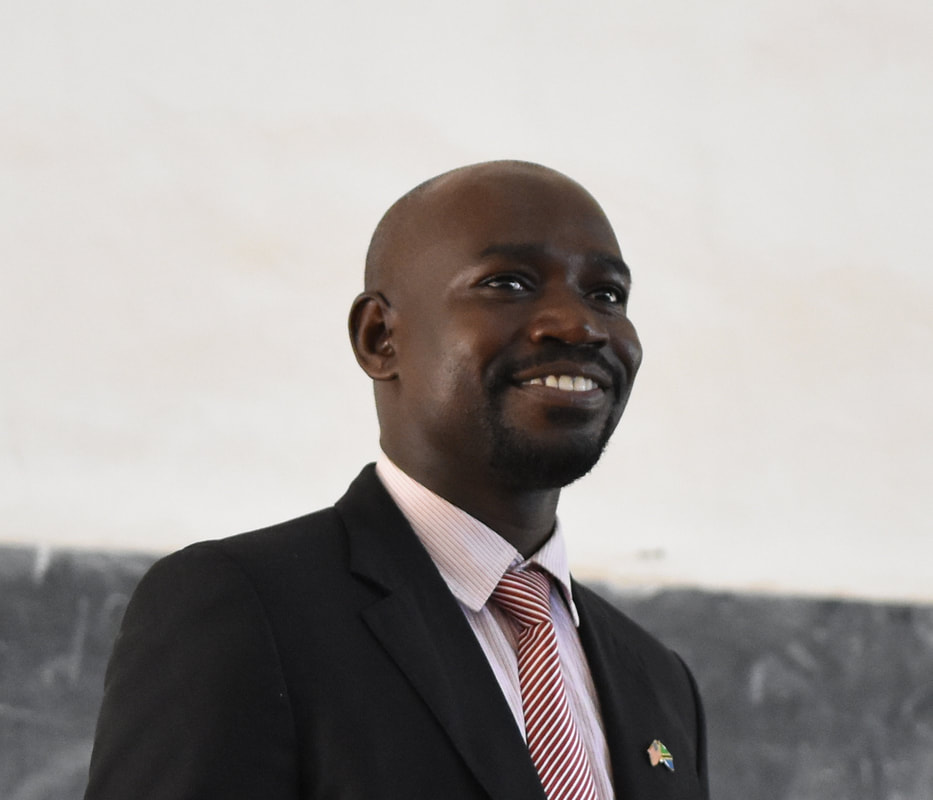Completed Projects
Thanks for visiting our Completed Projects page! Although many of our projects are ongoing and hope to grow over time, others have achieved their goal and are now recorded here. We stay in close touch with all previous projects to make sure that their positive impact continues.
#5) Girls' Bathroom at Mihama Secondary School (2021)
|
This building was completed in December, 2021 and will open when classes resume next term. Check back soon for more details!
|
Detailed Project Description [click here]
Our next goal is to construct a new girls' bathroom at Mihama secondary as well. Check back soon for more updates and a new project video!
Total Budget: $6,488 (intended)
New Toilets: 7
New Sinks: 4
Students Impacted Immediately (2020): 270
Total Budget: $6,488 (intended)
New Toilets: 7
New Sinks: 4
Students Impacted Immediately (2020): 270
#4) Boys' Bathroom at Mihama Secondary School (2021)
|
|
Detailed Project Description [click here]
On our third bathroom project, we had benefitted from past experiences and were able to move much more quickly! We also reused our blueprints from the Ibungilo bathrooms, with some slight adjustments. Special thanks to our donors for helping this project come to life.
Total Budget: $6,223
New Toilets: 7 (+ 1 trough urinal)
New Sinks: 2
Students Impacted Immediately (2020): 259
Total Budget: $6,223
New Toilets: 7 (+ 1 trough urinal)
New Sinks: 2
Students Impacted Immediately (2020): 259
#3) Boys' Bathroom for Ibungilo Sec. School (2020)
|
|
After completing a new Girls Bathroom at Ibungilo Secondary school in January 2019, we began construction on a Boys Bathroom building shortly thereafter. Click below for more details!
Detailed Project Description [click here]
Due to Tanzania's relatively young population (median 17 years old) and recent move to free secondary education, enrollment in public schools has skyrocketed in the past few years. This puts a massive burden on facilities that were originally built for much smaller groups of students.
At Ibungilo in 2019, 579 boys shared 3 toilets and no sinks. This created an impossible situation during the short breaks between classes, resulting in truancy, absenteeism, and student illness. The Kesho Fund built this new facility as a stopgap, offering 7 bathroom new stalls, a trough urinal, 2 sinks, and a materials storage room.
This still leaves the school needed more facilities, but it roughly quadrupled the boys bathroom capacity as well as made hand-washing sinks available, which are extremely important for preventing the spread of germs and bacteria and reducing illness.
At Ibungilo in 2019, 579 boys shared 3 toilets and no sinks. This created an impossible situation during the short breaks between classes, resulting in truancy, absenteeism, and student illness. The Kesho Fund built this new facility as a stopgap, offering 7 bathroom new stalls, a trough urinal, 2 sinks, and a materials storage room.
This still leaves the school needed more facilities, but it roughly quadrupled the boys bathroom capacity as well as made hand-washing sinks available, which are extremely important for preventing the spread of germs and bacteria and reducing illness.
Some Facts about the Need for Bathrooms at Schools [click here]
Students who attend schools that lack basic infrastructure face a significant disadvantage in achieving their goals. In Tanzania, it is common for classrooms to hold over 100 students, some of whom have to sit on the floor and nearly all of whom have to share books with one another. Bathrooms are not usually equipped with soap, and in many cases, students have to read in the dark in rooms that do not have electricity.
- As noted by WaterAid, GlobalCitizen.org, and The Guardian, lack of safe facilities puts girls and women in particular at risk for truancy, absenteeism, harassment, and abuse.
Project Photo Gallery [click here]
About the Project Leader [click here]
|
Petro Okoth is a Project Leader with the Kesho Fund as well as our Mwanza Projects Coordinator. He is also an English teacher at Luchelele Secondary School, the head of Luchelele Secondary's English Department, and the supervisor for his school's English club.
Petro received his BA from the St. Augustine University of Tanzania and spent 5 months at Kent State University through the International Leaders in Education Program (ILEP) in 2017. Petro also coordinates programs for open learning at his school, such as adult literacy courses, and is well known in Mwanza for his work to support students inside and outside of the classroom. |
Project Budget Details [click here]
1) Foundation: $964 [✓] (finished July, 2019)
2) Walls: $1097 [✓] (finished September, 2019)
3) Roofing: $786 [✓] (finished December, 2019)
4) Plumbing: $618 [✓] (finished February, 2020)
5) Plaster + Floor: $1386 [✓] (finished March, 2020)
6) Finishing: $822 [✓] (finished May, 2020)
TOTAL: $5,673
2) Walls: $1097 [✓] (finished September, 2019)
3) Roofing: $786 [✓] (finished December, 2019)
4) Plumbing: $618 [✓] (finished February, 2020)
5) Plaster + Floor: $1386 [✓] (finished March, 2020)
6) Finishing: $822 [✓] (finished May, 2020)
TOTAL: $5,673
#2) Girls' Bathroom for Ibungilo Sec. School (2019)
|
|
This project was dedicated to building a new girls' bathroom at Ibungilo Secondary School. Due to the young age of Tanzania's population, enrollment at schools is rising rapidly each year. This leads to many situations in which facilities intended for a small number of students are being used by an unsafe and unsustainable number of students. At Ibungilo, there were 3 toilets for 573 female students, 3 toilets for 513 male students, and 2 toilets for 45 teachers.
This issue leads to:
This issue leads to:
- Significantly overburdened facilities, which increase the rates of UTI, typhoid and other infections and health issues among students;
- Unhealthy wait times for students, who may not be able to use the bathrooms during short class breaks and then have to wait until later, which can cause several intestinal and urinary health issues;
- Students leaving school campus during the day to find bathrooms in the neighborhood to borrow, which increases rates of truancy, absenteeism, and sexual abuse of students.
Detailed Project Description [click here]
This project was dedicated to building a new girls' bathroom at Ibungilo Secondary School. Due to the young age of Tanzania's population, enrollment at schools is rising rapidly each year. This leads to many situations in which facilities intended for a small number of students are being used by an unsafe and unsustainable number of students. At Ibungilo, there were 3 toilets for 573 female students, 3 toilets for 513 male students, and 2 toilets for 45 teachers.
This issue leads to:
This issue leads to:
- Significantly overburdened facilities, which increase the rates of UTI, typhoid and other infections and health issues among students;
- Unhealthy wait times for students, who may not be able to use the bathrooms during short class breaks and then have to wait until later, which can cause several intestinal and urinary health issues;
- Students leaving school campus during the day to find bathrooms in the neighborhood to borrow, which increases rates of truancy, absenteeism, and sexual abuse of students.
Some Facts about the Need for Bathrooms at Schools [click here]
Students who attend schools that lack basic infrastructure face a significant disadvantage in achieving their goals. In Tanzania, it is common for classrooms to hold over 100 students, some of whom have to sit on the floor and nearly all of whom have to share books with one another. Bathrooms are not usually equipped with soap, and in many cases, students have to read in the dark in rooms that do not have electricity.
- As noted by WaterAid, GlobalCitizen.org, and The Guardian, lack of safe facilities puts girls and women in particular at risk for truancy, absenteeism, harassment, and abuse.
Project Photo Gallery [click here]
About the Project Leader [click here]
|
Petro Okoth is a Project Leader with the Kesho Fund as well as our Mwanza Projects Coordinator. He is also an English teacher at Luchelele Secondary School, the head of Luchelele Secondary's English Department, and the supervisor for his school's English club.
Petro received his BA from the St. Augustine University of Tanzania and spent 5 months at Kent State University through the International Leaders in Education Program (ILEP) in 2017. Petro also coordinates programs for open learning at his school, such as adult literacy courses, and is well known in Mwanza for his work to support students inside and outside of the classroom. |
Project Budget Details [click here]
Stage |
Description |
Parts |
Labor |
Total (intended) |
Total (actual) |
Stage 1 |
Foundation |
$729 |
$263 |
$992 |
$965 |
Stage 2 |
Walls |
$971 |
$241 |
$1212 |
$1057 |
Stage 3 |
Roof |
$614 |
$110 |
$724 |
$651 |
Stage 4 |
Floor |
$581 |
$285 |
$866 |
$877 |
Stage 5 |
Plumbing |
$322 |
$132 |
$454 |
$786 |
Stage 6 |
Finishing |
$746 |
$110 |
$856 |
$848 |
Total |
- |
$3963 |
$1141 |
$5104 |
$5184 |
Budget summary PDF coming soon!
#1) Electricity to Luchelele Secondary School (2018)
|
|
This project was dedicated to getting electricity run from the Luchelele municipal power lines to Luchelele Secondary School. Power at school is crucial for lights in the classrooms and for the use of computers and printers by teachers and students.
Detailed Project Description [click here]
Petro and his colleagues at Luchelele school teach nearly 700 students in non-electrified classrooms. This means that students spend a lot of time working in the dark, especially during Tanzania's 5 months of heavy rain each year. It also means that the teachers can't use printers or computers to prepare materials, the students can't be trained in the technology skills they need to succeed in today's workplace, and the school itself can't host evening classes for adults and other nontraditional students. The village of Luchelele itself has power, so all that was needed was wires, outlets, and bulbs for the classrooms as well as a power source and breaker box to utilize the municipal line nearby.
Some Facts about Infrastructure in Tanzania [click here]
Students who attend schools that lack basic infrastructure face a significant disadvantage in achieving their goals. In Tanzania, it is common for classrooms to hold over 100 students, some of whom have to sit on the floor and nearly all of whom have to share books with one another. Bathrooms are not usually equipped with soap, and in many cases, students have to read in the dark in rooms that do not have electricity.
According to the World Bank (2014) Tanzania is among the least electrified countries in the world, with less than 25% of the population having reliable access to electricity.
According to the World Bank (2014) Tanzania is among the least electrified countries in the world, with less than 25% of the population having reliable access to electricity.
This data from the World Bank (2014) was aggregated by Reddit user DataGuru314.
Project Photo Gallery [click here]
About the Project Leader [click here]
|
Petro Okoth is a Project Leader with the Kesho Fund as well as our Mwanza Projects Coordinator. He is also an English teacher at Luchelele Secondary School, the head of Luchelele Secondary's English Department, the supervisor for his school's English club, and the Secretary of the the Tanzanian English Language Teachers Association, Mwanza chapter (TELTA Mwanza).
Petro received his BA from the St. Augustine University of Tanzania and spent 5 months at Kent State University through the International Leaders in Education Program (ILEP) in 2017. Petro also coordinates programs for open learning at his school, such as adult literacy courses, and is well known in Mwanza for his work to support students inside and outside of the classroom. |
Project Budget Details [click here]
Intended Budget: $2,500 total
Actual Budget:
Total Spent by Kesho Fund: $2,175
Donation from the Luchelele local government: $220
Actual Budget:
Total Spent by Kesho Fund: $2,175
Donation from the Luchelele local government: $220
|
| |||||||||||||||||||||||||||||||||||||||||||||||


